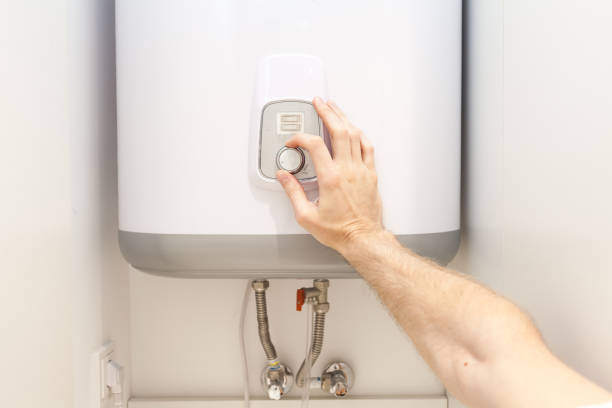Homeowners, landlords and building managers tend to follow a few rules of thumb when it comes to major upgrades, refurbishments and repairs to houses, and one of these is the ten-year rule for boilers.
This means that roughly every decade, a homeowner or landlord will start to seriously consider upgrading their existing boiler to a new one, assuming it is still in working order and does not need immediate replacement beforehand.
Whilst there have been some additional questions and concerns and incentives to swap out a boiler earlier than this, typically an engineer will start to suggest replacement following a decade if there are any telltale signs that it is starting to break down.
What is the basis for the ten-year rule, is it common sense to follow it and should you replace a boiler that is in working order?
How Long Do Boilers Last?
The lifespan of a boiler can vary considerably, from five years to potentially over 30, although both of these cases tend to be outliers and the typical lifespan of a boiler is around 15 years.
This can depend considerably on a huge number of factors, however, since differently sized homes will benefit from a variety of boilers and other internal and external factors can affect its lifespan.
There is a correlation between buying a quality boiler and it not only lasting longer but also remaining efficient for longer but this can be magnified through regular maintenance.
Landlords are legally obliged to check the safety of the boiler each year, but servicing a boiler every year and whenever you have an issue will ensure that minor problems can be fixed before they magnify and shorten the life of the boiler.
The type of boiler can affect its lifespan, with more complex combination boilers lasting closer to 10-15 years compared to larger conventional boilers, which tend to cost more and take up more space but can last longer.
Usage also has an effect on lifespan, which is why choosing the right size and type of boiler for your home’s water needs is essential.
Finally, if you live in a hard water area, the accumulation of limescale can cause your boiler to strain over time if you do not regularly service, power flush or use water softening systems to reduce mineral build-up.
Why A Ten-Year Rule?
The ten-year rule is partly about lifespan, but it is also about efficiency and avoiding spending good money after bad.
Over time, boilers become less efficient as more technologically advanced models become available and parts begin to wear down. This is one of the reasons (alongside inflation and the wholesale market) why energy bills will gradually increase over time with an older boiler.
As well as this, boilers rely on a lot of moving parts and components that can wear out over time, which can mean that there are more frequent repairs and a greater risk of callouts.
There is a tipping point where the cost of repairs and increasing energy bills is more than the cost of replacing the boiler with a newer, more efficient model, and boiler engineers are often in the best place to determine that time.
This is a gradual process but starts to be particularly noticeable after ten years, at which point if there are any breakdowns or unexplainable spikes in energy usage, it may be time to consider a new boiler.
Should You Ever Replace A Working Boiler?
Boilers that are breaking down, leaking, making strange noises or emanating unusual smells are going to lead a homeowner to look into replacing them, but there are plenty of reasons to replace a boiler that is still in working order once it reaches that ten-year mark.
The last decade or more has led to several advancements that have significantly improved efficiency, such as more effective smart controls, summer and winter modes that replace the inefficient process of turning the boiler off and modulation.
This means that replacing a boiler that otherwise is not causing any problems might still be a better choice for your finances than keeping it running.
The combination of improved technology of new boilers and reduced efficiency of older ones means that you could potentially save as much as £800 per year by upgrading your boiler.
As energy performance ratings are a major component in ascertaining house prices, switching to a highly efficient boiler can lower your house’s carbon footprint and add more value to your home than the new boiler cost to install.

